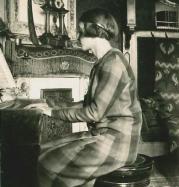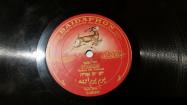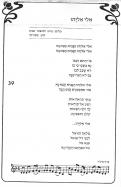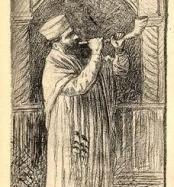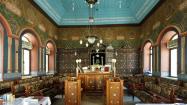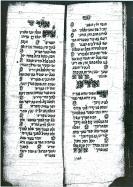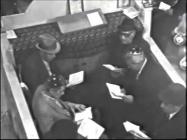(52 results found)
The Edith Gerson-Kiwi Legacy
… (1908-1992) is considered one of the founders of Israeli musicology. She studied piano and musicology in Berlin, Leipzig, Heidelberg, Freiburg i. Br. … recordings of Yaakov Huri in the Gerson-Kiwi Collection Iraqi-born cantor, Yaakov Huri was documented by Edith …
Yom Yom Odeh: Towards the Biography of a Hebrew Baidaphon Record
… seaboard. With me, I carry a treasure, a piece of lost musical history, or so I believe. Saved on my mobile phone … side was familiar with Hakham Raphael Taboush and/or the Iraqi version of “ Yom Yom Odeh ”, [6] nobody knew Rafoul … had once received a copy of “ Yom Yom Odeh ”, but its Iraqi version. This memory, in turn, prompted them to …
The medieval Hebrew song Kikhlot yeini and its Purim connections: New sources on its music
… Sasson collection of Hebrew manuscripts includes various Iraqi, Cochini (from Kerala in India), Algerian and Italian … and its documentation are therefore formidable. However, musical renditions of the piyyut are rather rare and will be … that Kikhlot yeini has survived in two apparently unrelated musical strands which we have labeled “Zionist” and “Jewish” …
“Eli Eliyahu:” The Havdalah Piyyut and its Melodies
… from B’nai Jeshrun: http://www.bj.org/spiritual-life/music-of-bj/invitation-to-piyyut-na/el-eliyahu/ Literary … traditions associated with this piyyut : the Ottoman/Iraqi traditions and the Maghrebi traditions from Algeria … new tunes by contemporary Israeli composers. The Ottoman/Iraqi Tradition A. Z. Idelsohn first published the …
A centerpiece of the High Holydays liturgy: Shofet Kol Ha'aretz in Moroccan and Yemenite versions
… of the opening stanza, is the refrain (the same words and music are repeated) and x, the last line of the rest of the … Shofet kol ha’aretz.” This is the earliest mention of the music of our poem, and obviously it indicates that in the … born and educated in Egypt but also a scion to a family of Iraqi Jewish musicians. Both of these musicians immigrated …
The Jerusalem-Sephardic Tradition
… th centuries and developed under Turkish-Ottoman and Arabic musical influences. Contents The tradition of … This singing is part of the liturgical and para-liturgical musical tradition of communities that descended from Jews … personal knowledge and tradition: Turkish, Persian, or Iraqi. The piyyut “Yedid Nefesh” is always the closing …
Elohim Eshala
… They formed an ensemble specializing on Israeli “folk music” called “Oranim Tzabar” playing arrangements by … tradition and betray the encounter of Dahiyani with Jewish musicians from other Arab-Jewish traditions in Israel, especially Iraqi Jewish musicians. Moreover, unlike the shorter …
Hayrana Laih
… in the Arab world, but also has connections to Jewish musical contexts and musicians. The lyrics of Hayrana Laih were written by Ahmed … was born in Cairo as Lilyan Mordecai to a Jewish family of Iraqi decent. Her father, Zaki Mourad was a famous musician …
Eicha Yashva Badad
… versions of a reading of chapter 1, verses 1-3, in the Iraqi Nussach, sung by Baruch Abdallah Ezra. They were conducted in 1951 by the ethnomusicologist Johana L. Spector, who recorded Jewish …
Baqqashah (Pl. Baqqashot)
… in that the piyyutim are arranged according to the maqamat (musical modes) in use in the court music of the Ottoman Empire during the author’s lifetime. … Jewish congregations (such as the Persian, Bukharian, Iraqi, Kurdish and Yemenite congregations). The final …



